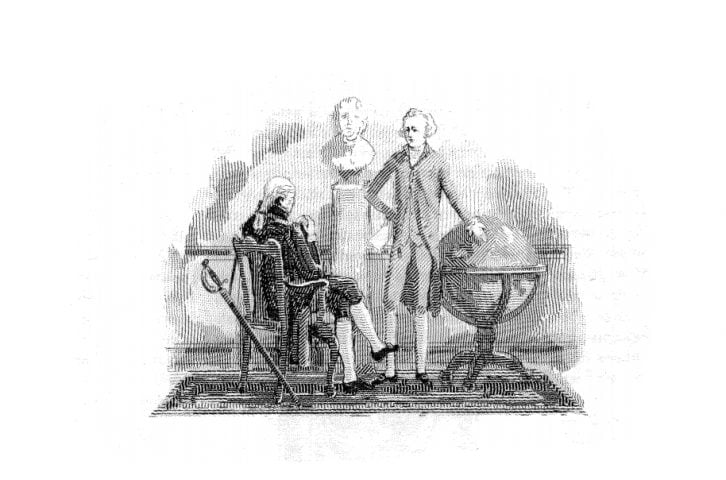Books Reviewed
As a young boy during and after World War I, I read everything I could find about the romantically named Lafayette Escadrille, the young Americans who became fighter pilots to help France in her war against Wilhelmine Germany. But living and thinking through the 20th and into the 21st century, I find myself torn between my boyish love for France and its culture and my despair over what France has become.
Kenneth Timmerman’s The French Betrayal of America is a savage, heavily documented indictment of today’s France, the France of Jacques Chirac, for whom the U.S. has become an enemy country.
It was Chirac who made Saddam Hussein the power he became in the Middle East. It was the French nuclear weapons establishment that had almost finished building a nuclear facility at Osirak, known derisively as O’Chirac, near Baghdad, when in 1981 Israel bombed it to rubble. Chirac built Osirak for Saddam even though in a 1975 interview Saddam had admitted: “The agreement with France is the first concrete step toward the production of the Arab atomic weapon.”
By 1983, Iraq was purchasing 51.5% of all French arms exports. In the U.N. Security Council, France became Saddam’s defender. Chirac’s unbreakable friendship with Saddam propped up a regime concerning whose accomplishments the Washington Post observed (July 7, 2003): “An estimated 290,000 people are missing and believed to be buried in mass graves throughout Iraq. In a country of 22 million, that is more than 1 percent of the population, the equivalent of about 3.5 million people in the United States. The vast majority of these bodies have not been found.”
Timmerman’s book of revelations is an eye-opener. Even in the days of the socialist François Mitterand, he argues, France looked upon the U.S. as a dangerous rival. That fear of the U.S. increased when the Soviet Union fell: no more need for American protection against the Bolsheviks. In 1991, L’Express revealed that between 1987 and 1989 French intelligence had planted moles in the French offices of IBM, Texas Instruments, and Corning Glass to steal economic and industrial secrets on behalf of French state-owned enterprises. An NBC documentary discovered that French airlines regularly planted microphones in the seats of their first-class compartment, to record conversations of U.S. businessmen.
According to Timmerman, the U.S. is now reacting to French enmity with some harshness. For example, the French military attaché in Washington was informed that France would not be getting its usual slots at the March 2004 Red Flag exercise, NATO’s premier live flying war game. And President Bush personally vetoed a request from the French chief of staff to visit CENTCOM headquarters in Tampa, Florida. Nonetheless, U.S. nuclear laboratories are still helping the French, the U.S. is still subsidizing the French nuclear weapons establishment, and, most unbelievable of all, the Bush Administration is offering Chirac the secrets of the U.S. national missile defense.
In France today, anti-semitism, both right-wing and left-wing, runs deep. Today the Paris Metro is no longer safe for Jews or those whom the Muslim gangs think are Jews. The Muslim population in France itself approaches 10% and is growing more influential each day. A recently published book, La Republique des laches (The Republic of Cowards), mocks the French regime for its retreat before its Muslim inhabitants’ anti-democratic behavior. For instance, instead of walking out of the stadium when the Marseillaise was booed at a French-Algerian soccer match, then-Prime Minister Lionel Jospin stayed on. And though the increasingly influential Muslim presence suffered a setback when the government forbade Muslim girls to wear their veils in school, separatist Muslims continue to demand that school gymnasiums and swimming pools be segregated.
One of the great errors in the aftermath of World War II was to have enshrined France among the permanent members of the United Nations Security Council (see Jeremy Rabkin, “No Miracle in San Francisco,” Summer 2004), leaving no room for democracies of far greater importance to the world today. If the president of France now regards America as an enemy country and French diplomacy is directed against the United States, all of which is fully and dramatically documented by Timmerman, it is time to think hard about what should be done.
Oh, and about those Americans who gave their lives fighting for French liberties, Timmerman tells this story: When Charles De Gaulle pulled France out of the NATO unified military command and ordered the United States to depart from bases in the Paris suburb of Saint-German-en-Laye, President Lyndon Johnson reportedly asked him if he also wanted us to take the graveyards full of our dead at Omaha Beach. Three belated cheers for LBJ.




